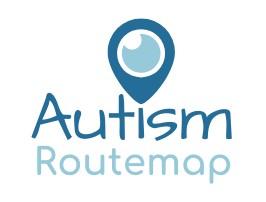Demystifying the needs of autistic / neurodiverse people

In the last two Blog posts, I’ve been looking at some of the issues that cause tensions in relationships between autistic / neurodiverse and neurotypical people. These points of friction often disappear or become smaller as we develop an understanding of one another.
And in the interests of further developing that understanding, today’s post continues to address more stressors that become like a pebble in the relationship shoe. Things that cause friction and sometimes, even relational breakdown.
All relationships are a two-way street. And that means both parties need to adapt in order to accommodate each other. What follows are some ways in which the neurotypical person can adapt to play their part in building a flourishing relationship.
Change
Autistic / neurodiverse people typically have more structured thinking styles which means they may well have a high need for control, predictability and order. Dealing with changes or having things suddenly sprung on them at the last minute can therefore be very difficult. Surprises and spontaneous events may be just what the doctor order for you but the old adage, “variety is the spice of life”, simply doesn’t apply to many autistic / neurodiverse people.
What to do?
- Give advance warning where possible and avoid last minute changes if you can.
- When decisions need to be made, try to make them swiftly if feasible, rather living in “limbo-land”.
- Accept that routines are a necessary part of life. They help neurodiverse / autistic people feel regulated.
- Try to reach some compromise over choices, for example, when it comes to restaurants or holiday destinations, as neurodiverse / autistic people often like the familiarity of places they have visited before.
Conversation
Many of the neurodiverse / autistic people I’ve known, dislike social chit-chat and aren’t necessarily great at asking socially curious questions, like, “How was your day?” But they often love to talk about meaty topics and especially, their special interests.
What to do?
- So, even if you’ve heard it before, indulge that person and give them the space they need to talk about their subject.
- And if you want to go the extra mile, show interest and ask questions. You might be surprised at what you discover!
- Don’t interpret the absence of socially curious questions as evidence that the autistic / neurodiverse person doesn’t care about you.
Social norms
Hugging, kissing, personal space. If these are uncomfortable for the neurodiverse / autistic person, don’t take it personally. It’s not a reflection on their feelings for you.
What to do?
- As much as this may be your way of showing affection, try to give the other person the space they need to feel comfortable.
- Look for the ways in which they are showing their affection – it may come in other forms, such as practical help around the home or little gifts. Recognise these for what they are.
Anxiety
Anxiety (even severe forms) can be triggered by seemingly minor events. It may be a change that has happened, a topic that has been raised or the pressure of having to do something, like attend a social event.
What to do?
- Recognise that the neurodiverse / autistic person is not being ridiculous. They are feeling genuine angst and even though they may appear to be coping, the internal discomfort can be intense.
- Be supportive and treat that person in the same way that you would like to be treated if you were in the middle of a panic.
What next?
All of this may sound like I am suggesting that the neurotypical person should shelve their needs to accommodate those of the neurodiverse / autistic person. That, of course, wouldn’t make for a balanced or happy relationship. The needs of both parties should always be taken into consideration. If one person is making all the adjustments, then they are very likely to end up feeling despondent and resentful.
But as Lao Tzu rightly pointed out, “a journey of a thousand miles begins with a single step”. And the willingness to make that first step will take you a lot further than standing still and waiting for the other person to get moving.
To you and your journey!
Linda Philips
MSc. Human Communication
Autism Routemap supports autistic and neurodiverse people with coaching and training to improve communication, interaction, and emotional regulation skills. Interested in knowing how we can help?
Contact linda.philips@autismroutemap.com or book a free Turning Point call here.

